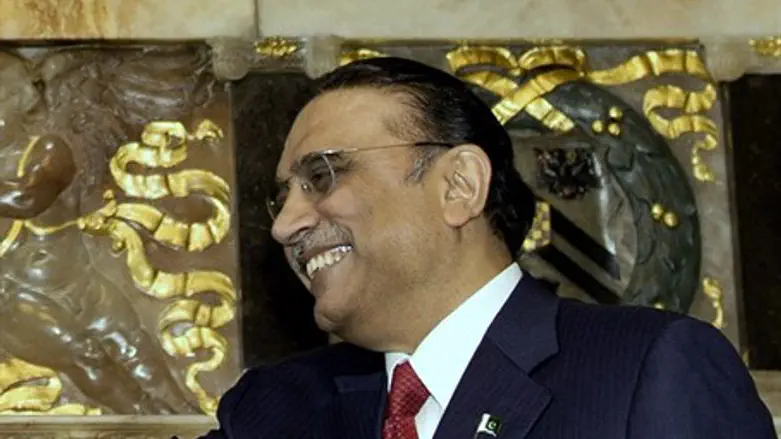
Pakistani President Asif Ali Zardari was due in Tehran on Wednesday for discussions on a much-delayed gas pipeline deal which is opposed by the United States, Iranian media reported, according AFP.
Zardari would meet with President Mahmoud Ahmadinejad and supreme leader Ayatollah Ali Khamenei during the one-day visit focused on the $7.5 billion project, which will see Iranian gas delivered to Pakistan, according to reports.
"The Pakistani president will meet with the supreme leader and the president after arriving in Tehran. The trip is aimed at deepening bilateral ties and also discussing regional and international issues which concern both nations," the Fars news agency reported.
"Bilateral energy projects including the Iran-Pakistan gas pipeline will also be discussed," it added.
The pipeline project has run into repeated problems, including Pakistan's difficulty in finding funds and opposition to the project by Washington, which has imposed sanctions on the Iranian regime in an effort to curtail its nuclear program.
The Pakistani media had last year reported that Zardari would visit Iran in mid-December 2012, when a final agreement was to have been signed.
In 2010, Iran and Pakistan agreed that Tehran would supply between 750 million cubic feet (21 million cubic metres) and one billion cubic feet per day of natural gas by mid-2015.
Islamabad has said that it will pursue the project regardless of US pressure, calling it vital to overcome the country's energy crisis that has led to debilitating blackouts and suffocated industry.
Iran has almost completed the pipeline work in its territory, but Pakistan has not yet started construction of 780 kilometres (490 miles) of the pipeline on its side, which is said to cost some $1.5 billion, according to AFP.
Sanctions-hit Iran finally agreed to finance one third of the costs of laying the pipeline on Pakistani territory, with the work to be carried out by an Iranian company.
The partnership will be of enormous benefit to both countries.
The Islamic republic has been strangled by a Western oil embargo that has seen its crude exports halve in the past year, while Pakistan has an acute need for energy, and plans to produce 20 percent of its electricity from Iranian gas.
Iran has the second largest world gas reserves after Russia but currently produces some 600 cubic million metres a day, almost all of which is consumed domestically due to lack of exports means. The only foreign client is Turkey, which buys about 30 million cubic metres of gas a day.
Tehran also plans to sell its gas to Iraq and Syria. The three countries agreed in 2011 to build a pipeline. The work has already begun on the Iranian side.